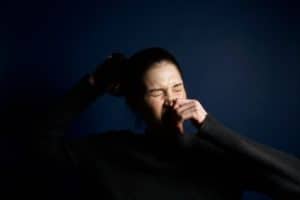What Causes Seasonal Allergies?
Seasonal allergies, also known as hay fever or allergic rhinitis, affect millions of people, causing discomfort and disrupting daily activities. We understand how these...
Posted on May 3, 2019
AllergyNow that it’s Spring (finally!), you are probably enjoying longer days, warm sunshine and chirping birds.
Less enjoyable? The itchy, watery eyes, stuffy or runny nose and sneezing associated with seasonal allergies.
But are your symptoms actually the result of pollen in the air, or are you instead suffering from a sinus infection?

Seasonal allergies are very common in Abington and throughout the U.S.; approximately 40 to 50 million people suffer from allergies triggered by pollen, mold spores and animal dander.
But the symptoms can easily be confused with a chronic sinus infection called sinusitis.
Both cause cold-like symptoms such as itchy eyes, nose and throat; nasal congestion and/or discharge; cough; sneezing; hoarseness; post-nasal drip; irritability and fatigue.
Sinus infections are often accompanied by facial pain and pressure, making an already unpleasant experience even worse.
How to tell them apart, then?
The easiest way to determine whether your symptoms are the result of allergies or sinusitis is to determine when, and how often, you experience symptoms.
Allergy symptoms occur (or worsen) soon after you come into contact with the allergen; they are your immune system’s attempt to rid your body of a potentially harmful substance such as pollen, mold and other environmental irritants.
Allergies are most common in the spring and fall months but can occur year-round.
Sinusitis often follows a cold or allergies (the latter making it even more difficult to distinguish between the two).
Symptoms of sinus infection are more persistent and can linger for a long time.
The condition is considered chronic if symptoms last longer than 12 weeks.
If you have allergies in Abington, try over-the-counter or prescription allergy medications.
Immunotherapy (allergy shots) or oral drops may be required for long-term relief if drugs don’t help.
Your first line of treatment for sinusitis might include decongestants, antibiotics, humidifiers, warm compresses, nasal sprays and corticosteroids.
If these don’t do the trick, your Abington ear, nose and throat doctor will likely recommend surgery.
You’ll probably have two options depending on the severity of your symptoms and any underlying structural issues, such as a deviated septum or nasal polyps.
Endoscopic sinus surgery involves inserting a thin, flexible instrument with a small camera lens attached into your nasal passages; images transmitted from the camera allow your doctor to remove blockages.
A less-invasive procedure called Balloon Sinuplasty is recommended for patients without physical obstructions.
This procedure utilizes a catheter with a small balloon attached; this is inserted through the nose and gently inflated, widening the nasal passageways and promoting fluid drainage.
If you’re suffering from these symptoms and unsure whether they are related to allergies or sinus issues, it’s best to schedule an appointment with a Abington ENT specialist for the final word.
Wynnewood
308 East Lancaster Avenue, #205
Wynnewood, PA 19096
(610) 642-9301
Abington
1245 Highland Ave, #502
Abington, PA 19001
(215) 886-1482
Spring House
909 Sumneytown Pike, #103
Spring House, PA 19477
(215) 646-2118
Seasonal allergies, also known as hay fever or allergic rhinitis, affect millions of people, causing discomfort and disrupting daily activities. We understand how these...
Could Honey Cure Your Allergies? In Lubbock, Texas, Cal Brints, a local honey producer, thinks local raw honey is the bee’s knees as a treatment...
April 22nd is Earth Day, part of a worldwide movement to focus on and care for our environment. As you celebrate Earth Day by...
Does cold winter weather have you hunkering down at home in hibernation mode? If so, you’re probably tempted to turn the thermostat way up,...